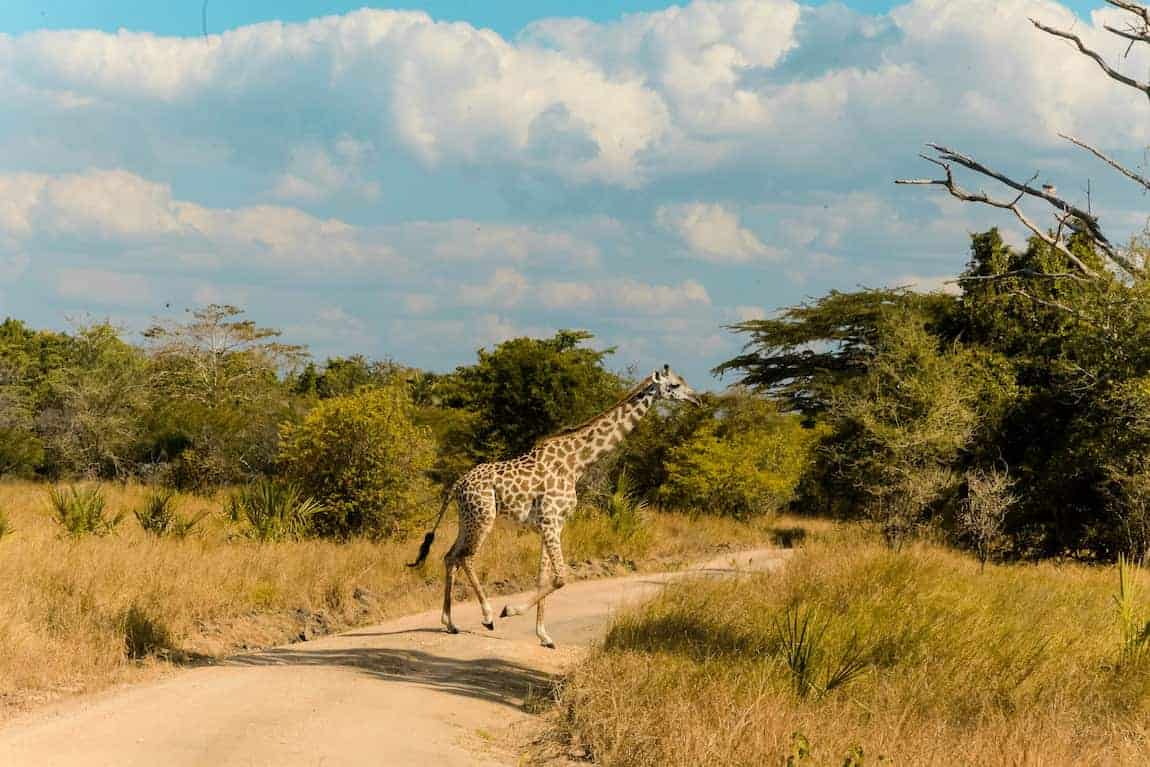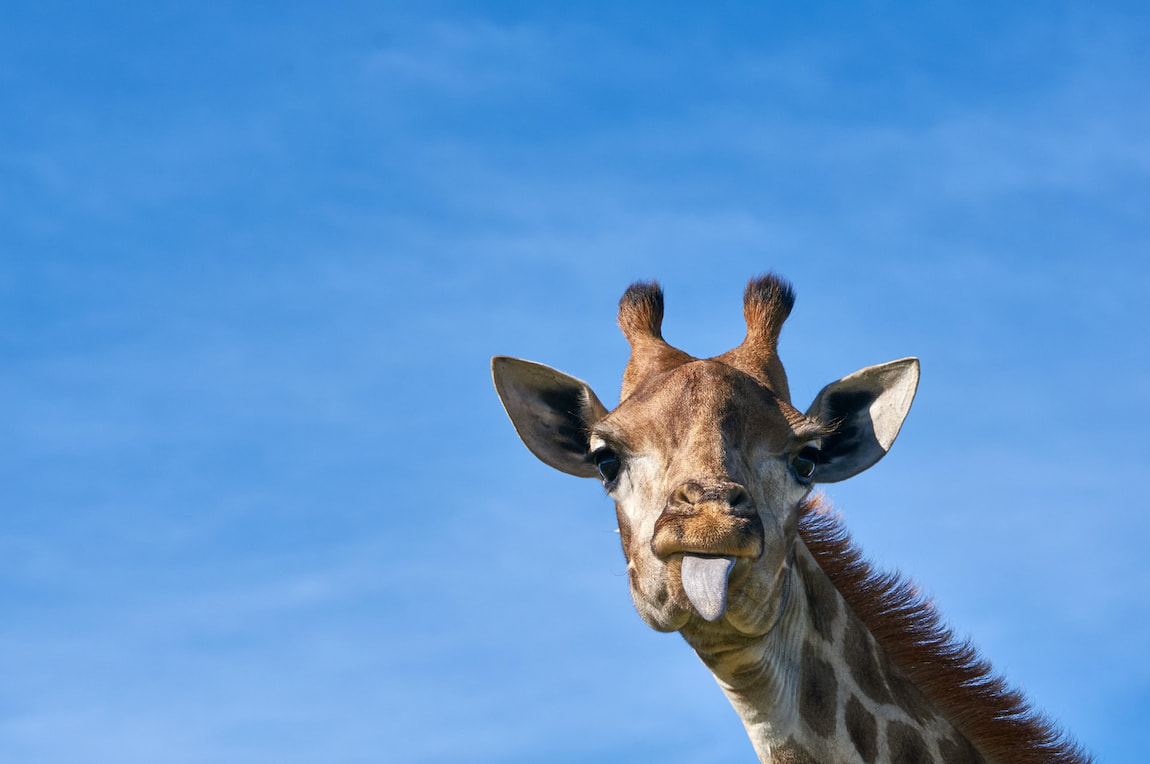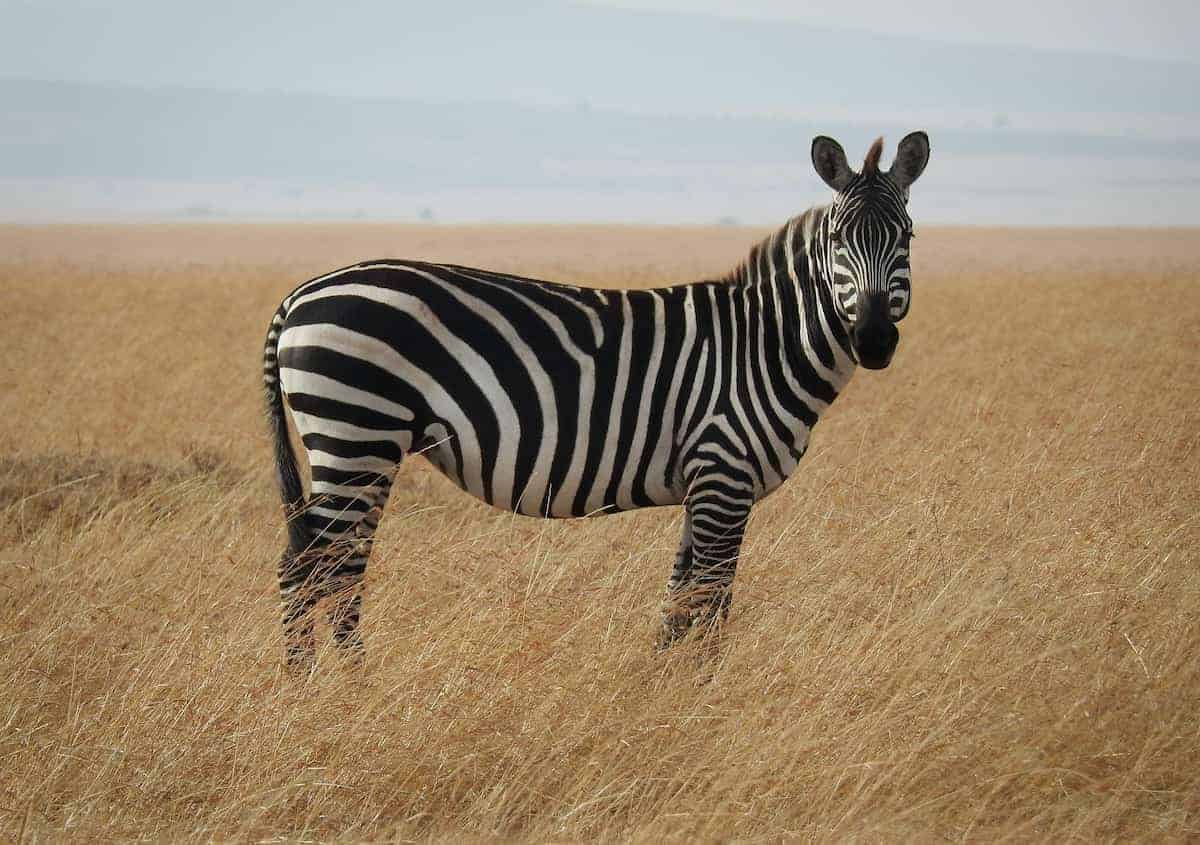If you’ve ever been to a zoo and seen a giraffe, you might have wondered if they’re able to lay their head down to rest at night. The reality is that although giraffes have long necks, it doesn’t keep them from getting the rest they need to survive—which may be a surprisingly small amount to you.
In the wild, giraffes sleep between four to five hours per day, which means the rest of their time is spent doing giraffe things. Unlike many other wild animals, the giraffe is somewhat of an insomniac.
In this article, you’re going to learn all about how long giraffes sleep, and why.
How Long Do Giraffes Sleep?
This might sound surprising to you, but giraffes only sleep for about 4.6 hours per day. You’re probably wondering how such a large animal can sleep so little and still be able to function throughout their day, but there are several factors to take into consideration.
The sleep patterns of wild animals have evolved over millennia. Survival is always the first priority—even to an animal as tall and fast as a giraffe. In the wild, if you’re not a predator, there’s a good chance you’re going to cut some hours of sleep to keep yourself protected and secure.
Baby giraffes tend to sleep for longer stretches, as they often rely on their parents to keep watch for danger, but fully grown adult giraffes almost never sleep for longer than 30 to 40 minutes at a time. Interestingly, adult giraffes seldom lay down to sleep either, but we’ll talk about that more later.
When Do Giraffes Sleep?
It’s typical for mammals to catch their shuteye after the sun goes down, and giraffes are no exception. Giraffes are most often diurnal, but they do tend to move around and continue their activities even long after the sun has gone down.
This is largely due to their instinctive need for safety from predators. If they sense danger nearby, giraffes may not sleep at all until they’ve cleared the area.
It’s not uncommon to find a giraffe catching a quick nap during the daylight hours though—especially the babies. These quick naps allow them to conserve energy for long periods of time, but their sleeping habits are different from humans—sometimes they leave their eyes open.
Despite the sometimes numerous afternoon naps, giraffes still only manage to get between four to five hours of sleep each day.
How Do Giraffes Sleep?
If you’re wondering whether giraffes lay down to sleep or how do they actually sleep then check out our quick blog on How Giraffes Sleep
Where Do Giraffes Sleep?
As it is with most animals of sub-Saharan Africa, you won’t find them sleeping in the open, where they’re vulnerable to predators. It’s more common to find a group of giraffes sleeping in a secluded location, surrounded by trees that serve as both concealment and food.
This contributes to the amount of sleep they get, as it provides some safety from predators, and food to digest (more on that later though).
Do Giraffes Dream?
You know that giraffes are mammals, and all mammals share very similar sleep patterns, including both rapid eye movement (REM), and non-REM sleep. While giraffes sometimes do enter REM sleep (the phase of sleep in which dreaming occurs in humans), this is uncommon in the wild.
Giraffes need to be completely at ease, laying down, and curled up (as we described earlier) to enter REM sleep. Being in the wild, with the threat of lions and other African predators lurking, it’s difficult for the giraffe to relax long enough to reach REM sleep.
It’s uncommon for a giraffe to sleep for longer than a half hour in one stretch of time, let alone long enough to reach a REM cycle. That doesn’t mean it’s impossible though!
Do Giraffes Really Sleep with One Eye Open?
It’s not uncommon for giraffes to snooze during the day with one eye open. This helps them remain alert to possible danger while catching some rest.
Why Do Giraffes Sleep So Little?
As we’ve discussed, the reason for the giraffe’s seemingly inadequate amount of sleep is likely due to the constant threat of predators. It’s a common misconception to think that lions never attack giraffes because of their size and speed, but the reality is that they’re extremely vulnerable (like everything) when they’re asleep.
Another possible reason for giraffes’ limited sleep is rumination. This is a process that giraffes need to go through to better digest their food. Essentially, they regurgitate the food they consume, transferring it from one stomach to another for further digestion. They need to be awake for this process to take place, so sleep gets pushed aside while they digest the highly fibrous food they almost constantly feed on.
Conclusion
As you’ve discovered in this article, giraffes sleep very little compared to most other mammals in the wild—only four to five hours per day. This is due mostly to self-preservation and, possibly, rumination. Giraffes seldom reach REM sleep, and when they do, it’s not for much longer than a minute or two, as they’re constantly alert.





